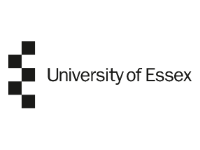
ESSEX UNI
The University of Essex was founded in 1964 as a public research institution.
Essex’s research is spread across three different faculties; Social Sciences, Arts and Humanities, and Science and Health.
Academics work with governments, businesses, charities and other non-profit organisations around the world to influence policy, enhance technology, unearth new discoveries and change social and cultural values.
There are 18 different schools or departments of research at Essex, ranging from a number of different subject areas such as Law, Government, Sociology, Life Sciences, Computer Science and Electronic Engineering, and Health and Social Care.
Academics are able to share their expertise and ideas with colleagues through interdisciplinary research carried out within our research centres and institutions.
Essex boasts one of the UK’s first Human Rights Centres, which has seen academics from across all three faculties address injustice and promote a fairer society for all.
Other interdisciplinary work is carried out at other centres and institutes, addressing issues from a range of areas such as inequality in coastal communities, analytical data science, and asylum and refugees.
The University of Essex offers opportunities to people from underprivileged backgrounds through a number of scholarships and bursaries, and is officially recognised as a University of Sanctuary for its commitment to supporting refugees.
It now has a student population of more than 19,000 students, spread across three campuses in Colchester, Southend and Loughton.
The University has an international outlook, with more than 140 different countries represented among its student population. Around one third of students are oversea, with 12.8% based within the EU and a further 21.5 per cent from North and South America, Africa, Asia and Australia.
The contribution of the university to the wider UK economy stands at more than £500m, with £478m benefitting the local economy in Colchester and £55m in Southend.
